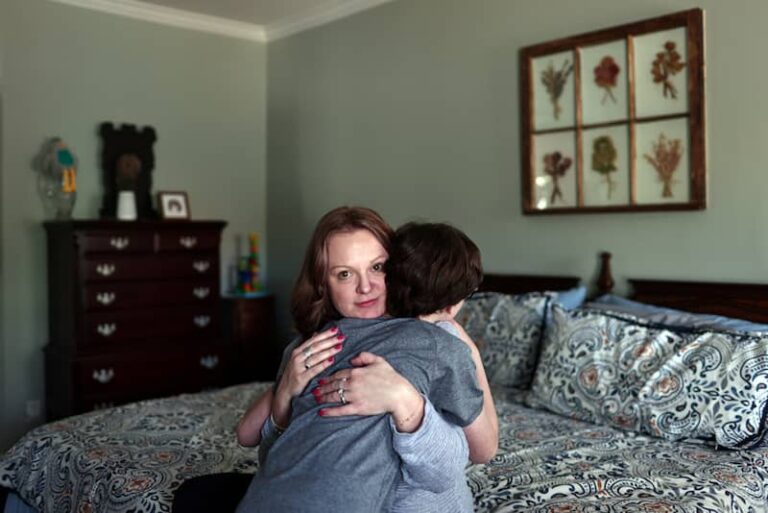They make disturbing headlines: A Melbourne teenager responsible for a suicide bombing in Baghdad that kills five people and injures up to 90 others; a New Zealander killed in a drone strike alongside al Qaeda militants in Yemen; European jihadists fighting in Syria; and two teenagers from Bankstown, Sydney, running away to join the fight in Iraq.
It’s hard to fathom why someone would leave their family in Australia to blow themselves up on foreign soil, or imagine what motivates a person to see an operation like suicide bombing as a path to heaven.
Human behaviour expert Dr John Demartini has a theory – unfulfillment.
He believes it is a psychological driver of terrorist groups at a base level, as well as a key factor that can lead people to the path of extremism.
“Every human being lives by a set of priorities called a hierarchy of values. Whenever we are doing things that are aligned with our highest values we have the greatest fulfillment,” says Demartini.
“So any time you are not doing what is most meaningful in your life you are more vulnerable to outer influences. The more unfulfilled we are with our highest values, the more vulnerable we are to extremes.”
Feeling disfranchised is part of that, says Dr Negar Partow, senior lecturer in security studies at Massey University.
Partow is an expert on Middle Eastern politics, religion, human rights and global security. Born in Tehran, she lived through the 1979 Islamic Revolution and the Iraq-Iran war in the 1980s.
“There are immigrants who go back and start committing these sorts of crimes. They are the ones who become really disfranchised in their new community … they start developing a sense of alienation.
“They don’t feel that they are part of that society, they feel that they are excluded, particularly since 2001 and the rise of Islamophobia in Western countries after September 11,” Partow says.
“Others start to look for a way back to their roots and feel a sense of injustice in global terms. If they go to find their religious roots and meet somebody who is an extremist, there is a possibility that they get attracted for the sense of injustice.”
In the case of the two teens from Bankstown, it’s believed jihadist videos played a part in their recruitment.
Meanwhile, the 18-year-old from Melbourne, who blew himself up in a crowded marketplace in Baghdad in July, was 17 when he first left Melbourne for Iraq to become a martyr for terror group the Islamic State in Iraq and Syria (ISIS).
Those in their teens and early 20s are particularly vulnerable to brainwashing, says Demartini.
“They’re not always clear yet who they are … They’re revolting against the present authority. If they’re not feeling that they are free and somebody comes along and condemns what they are also condemning, that catalyses into a feeling of pleasure and so they are more vulnerable to a fantasy … In the case of a terrorist act it could be life or death for them because they actually believe it.”
Terrorism and extremism do not just emerge from a vacuum, says New Zealand Defence Force psychologist Captain Alia Bojilova.
“It needs to have a whole lot of work poured into it to emerge into what it is. We know there are places that are specifically designated to train and to shape impressionable minds or vulnerable minds to take these sorts of actions.”
profiling Terrorists
The idea of defining a specific “terrorist personality profile” or “extremist mindset” has been pursued by sociologists and psychologists, but to date there isn’t such a thing as a single personality type that fits
a terrorist template, says Bojilova.
“We like to comfort ourselves by looking after the fact at key predicting factors and conditions in which these things may have arisen,” she says.
“But the fact is that you can’t compare all of them because the more we experience this phenomenon, the more we realise
that they are so very varied. That’s not
to say that there isn’t a difference between
a terrorist and non-terrorist, but the range is so great that there isn’t such a thing as an all-embracing terrorist profile.”
Decades of research have identified that mental illnesses and specific personality characteristics are less predictive of extremist tendencies, than certain vulnerabilities and propensities in people.
What is interesting is how otherwise normal mental states transpire into and affect a person’s propensity to become involved in extremist activities, says Bojilova.
“What presents more consistently are certain vulnerabilities and propensities that can be linked to extremist behaviours,” she says. “For example,
some describe a fundamentalist mindset as including dualistic thinking – that is, believing that people are either completely good or completely bad – paranoia, apocalyptic thinking, loss of one’s identity into an idea greater than the self, and the association with charismatic leaders.
“We also know that a strong need for identity, a need for belonging to something greater than oneself, and the perception of injustice and humiliation may shape psychological vulnerabilities in people.”
Research also suggests that terrorists don’t necessarily always come from poverty-stricken backgrounds.
“On one hand we know that often some of these behaviours emerge from environments where there has been fluctuating economic conditions, economic shock, scarcity of resources and the presence of non-state actors who end up providing resources for the impoverished in return for loyalty and belonging to the group,” Bojilova says. “However, many terrorists come from middle- to upper-class groups, are well educated and have had a relatively stable upbringing.”
Searching for solutions
The Centre for Defence and Security Studies at Massey University, New Zealand explores topics such as traditional and emerging security issues, national security strategy, border security, terrorism, human security, biosecurity, policing and intelligence. It aims to make the world a safer place through education and research. Although open to anyone, it is especially targeted to those working in the defence and security sector.
“One of the greatest security challenges we face today does pertain to terrorism,” Bojilova says. “We will continue to exist in an increasingly uncertain environment. We have moved away from conventional warfare, fought by soldiers from distinct opposing forces, on a defined battlefield. We’ve moved into an asymmetric space, where the impact can be initiated from and felt anywhere in the world; the use of non-state actors from different countries of origin.”
The phenomenon of European jihadists flowing into Syria is attracting the attention of Western security agencies, according to “Blue-Eyed Jihad”, a widely circulated report in Foreign Policy by reporters Harald Doornbos and Jenan Moussa, who interviewed European radicals fighting in Syria. The vast majority are white converts to Islam or naturalised immigrants with
a Muslim background.
The jihadists’ religious extremism, military experience in Syria, and the ease with which they can travel around Europe and the US has raised fears that such people could return “as part of really a global jihadist movement to Western Europe and, potentially, to the United States”, according to the US National Counterterrorism Center.
The Australian Security and Intelligence Organisation (ASIO) is currently monitoring 150 citizens in Australia and overseas who have suspected links to “violent extremist groups”.
Working for fulfilled societies
Demartini believes “engaging children in education” is a key step in preventing the recruitment of minds by terrorist groups
in the future.
Meanwhile, the inclusion of other cultures in society, in areas including education, health and social debate, is also important, says Partow.
“First of all we raise these issues in public debates. Not in an emotional way, but in an informative way so that we discuss politics, inclusion and social interaction,” Partow says.
“The first step for engaging civil society into taking action on anything is informing them. An uninformed civil society is not going to help. Unfortunately mainstream media are becoming more and more of a business apparatus and more interested in showing you 10 different ways of making a strawberry pie, rather than telling us about these issues that have fundamentally affected our lives globally.”
Terrorist or freedom fighter
A terrorist is only a terrorist when categorised by those who don’t subscribe to the same values, says military psychologist Alia Bojilova.
One of the greatest examples is Nelson Mandela, who was considered an extremist and who employed “guerilla tactics” to fight [what he saw as] the “oppressor”. Decades ago he was considered a terrorist – now he is a hero. We must remember that one person’s terrorist or extremist is another’s freedom fighter.
“The name Free Syrian Army in itself carries a lot of positive connotations – for them at least,” says Bojilova.
“Many see what they perceive as something righteous and good, so that’s the tricky bit. We need to always remember the place where these individuals come from or the group they ascribe themselves to.’’







